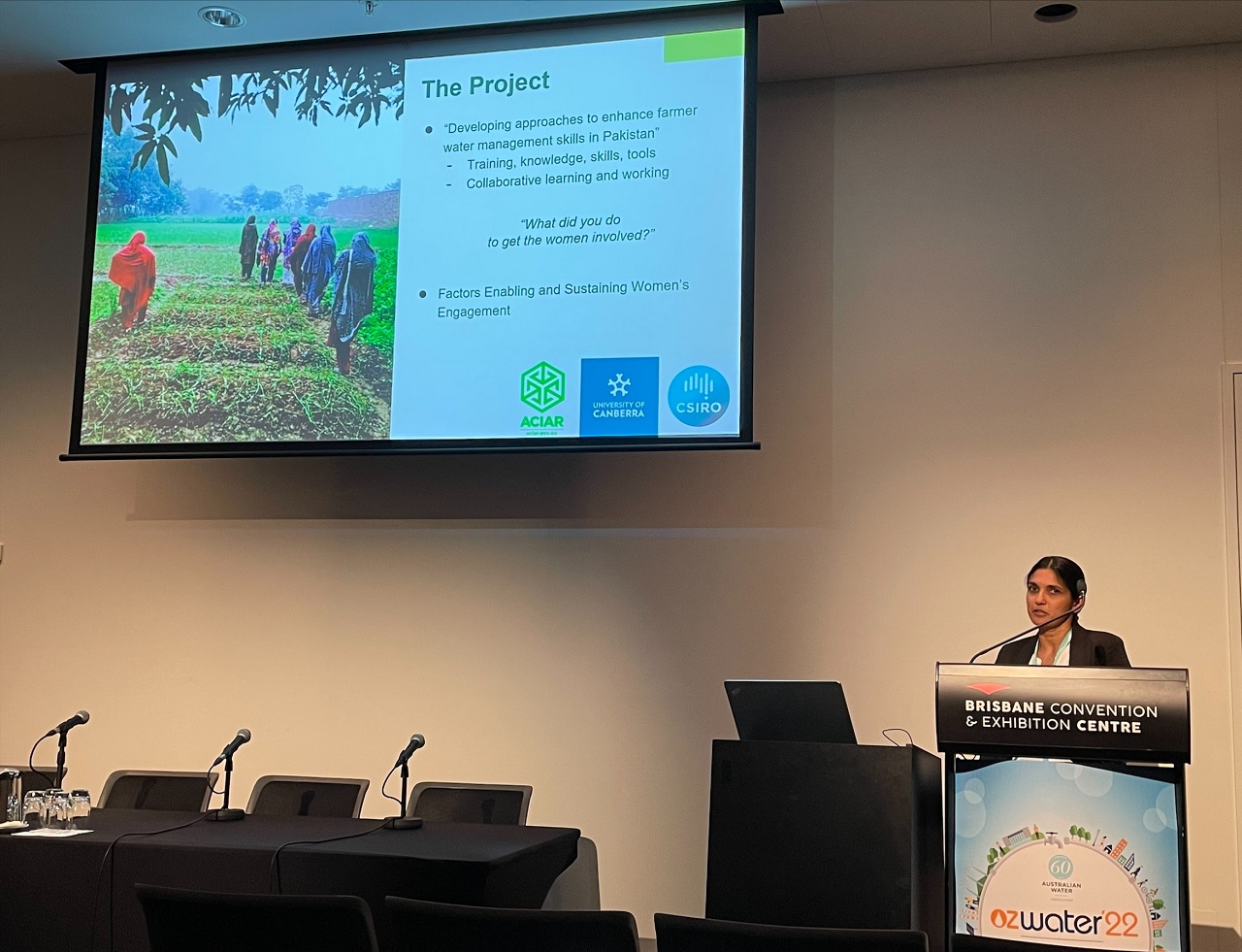Elly Mackay
18 May 2022: A recent Master of International Development graduate from the University of Canberra’s Faculty of Arts and Design, Gowri Pincombe, has been awarded the ACT Student Water Prize from the Australian Water Association for her research towards a project in Pakistan.
The project, Developing approaches to enhance farmer water management skills in Balochistan, Punjab, and Sindh in Pakistan, was funded by the Australian Centre for International Agricultural Research (ACIAR), under the leadership of the University’s Senior Lecturer Dr Sandra Heaney-Mustafa.
The project provided farmers with training, knowledge, skills and toolsto manage water security issues associated with agriculture – which included water scarcity, low water productivity, water misuse, pollution, groundwater depletion, and the effects of climate change.
In the patriarchal, conservative communities, the consistent involvement of women throughout the project was significant.
Ms Pincombe conducted forty-eight individual and focus group interviews with both men and women in six villages, across two provinces in Pakistan.
“The project team implemented gender sensitive methods and culturally sensitive practices – like getting the men involved first, for them to then encourage the women to get involved,” Ms Pincombe said.
“This meant that the women gained the support of the men involved right from the outset, and the men didn’t feel threatened, as the power dynamics weren’t disrupted.”

The project adopted the newly-developed Farmer Integrated Learning Model (FILM), which is a highly effective collaborative learning and working method, in line with the project’s mission to not only address water management, but also to engage and empower women.
It was discovered throughout the course of the project that collaborative working was imperative for its success, especially for the women.
“The project created a platform for collectively working, where women could come together, and work – they were able to share their knowledge, share the burden, form friendships and bonds, and develop better social capital,” Ms Pincombe said.
“In these highly patriarchal communities, some women hardly ever left their homes before the project – it was so nice to see how the women came out of their homes and worked collectively with other females.”
The project was also found to bring a broad range of indirect benefits through enhanced confidence, new ways of thinking, communication, mutual decision-making, good relationships and mutual respect.
“Collective working improved mutual decision-making among men and women significantly, which was welcomed by the men, as they felt more supported and better understood themselves – this was really good for the community overall,” Ms Pincombe said.
Despite the interviews being conducted virtually due to the COVID-19 pandemic preventing travel to Pakistan, the research was completed successfully as a result of locally engaged project teams and interpreters.
“I could use my findings to make recommendations for the project, and also make recommendations to ACIAR for future projects,” Ms Pincombe said.
An engineer by profession, Ms Pincombe has followed her passion, and since completing her Master of International Development, is transitioning her career into the development sector.
“I’m really grateful to ACIAR, UC [especially my supervisors Dr Sandra Heaney-Mustafa and Tahmina Rashid] and the project teams for their support with this research – it was a truly life-changing experience,” she said.
Ms Pincombe’s award propelled her to the national stage at the OzWater conference earlier this month.
“It was such a privilege to be involved in an incredible project that is transforming lives in rural communities in Pakistan,” she said at the conference.
“I dedicated the award to the farmers involved in the project, especially the women, who are breaking down barriers, and making their communities more inclusive and a better place for the future.”



